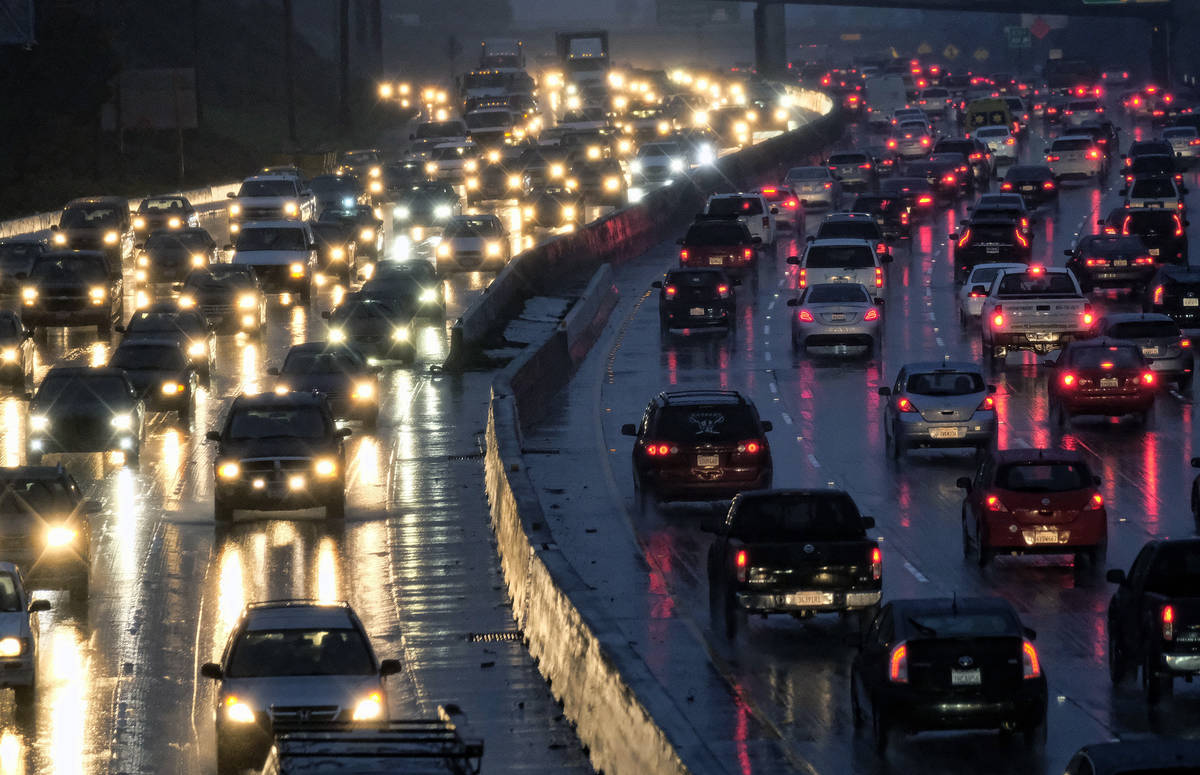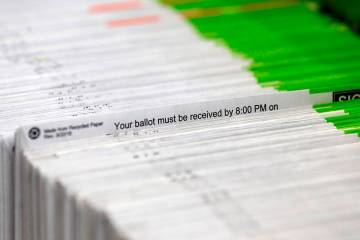EDITORIAL: Traffic bill highlights the value of bipartisanship
Gov. Steve Sisolak has in recent days signed a raft of bills that survived the legislative session. One of the more worthwhile pieces of legislation he has endorsed was Assembly Bill 116, which decriminalizes several minor traffic offenses.
AB116 had bipartisan support and brings Nevada in line with the 37 other states that treat certain driving infractions as civil rather than criminal offenses. The practical effect of the change is to prevent the authorities from arresting and even jailing drivers for failing to pay traffic tickets issued for speeding, seat belt violations, an expired registration or other offenses.
Most drivers who find themselves pulled over for a moving violation simply pay the ticket and move on. But for many motorists — particularly those of less modest means — traffic fines can impose a significant financial burden. Nonpayment or late payment can result in warrants, higher fines, arrest and jail — snowballing into a more serious situation that can cost poorer defendants their jobs or worse when they are incarcerated or lose their driver’s licenses.
AB116 will encourage the courts to offer alternatives to those who have financial hardships, thus making it less likely that they’ll face overly punitive consequences for simply being unable to pay a traffic fine.
“The main purpose of this bill,” said Assemblywoman Rochelle Nguyen, D-Las Vegas, “is to make sure we are not arresting, we are not incarcerating and we are not branding people as criminals for minor traffic violations.”
Critics fret that the change will make our roadways more hazardous and reward scofflaws who don’t — or won’t — pay their fines. But there is nothing in AB116 that prevents serial offenders — regardless of their financial status — from being punished for repeated driving infractions that endanger other motorists or for regularly flouting traffic penalties. Nor is there anything in the new law that encourages law enforcement to dial back on traffic enforcement.
Instead, the bill is aimed at ensuring that low-income drivers don’t become ensnared in the legal system over an isolated driving lapse. AB116 also has the added advantage of freeing the judicial system to concentrate on more important issues related to public safety.
“We’ve unfortunately seen how quickly a traffic ticket can led into something so much bigger,” said Kendra Bertschy, a Washoe County deputy public defender. “It really just becomes so all-consuming where people are then thrust into the criminal justice system really needlessly.”
There weren’t many issues on which legislative Democrats and Republicans agreed during the 81st legislative session. But AB116 passed with one just dissenting vote and should be a model for future bipartisan cooperation.




























